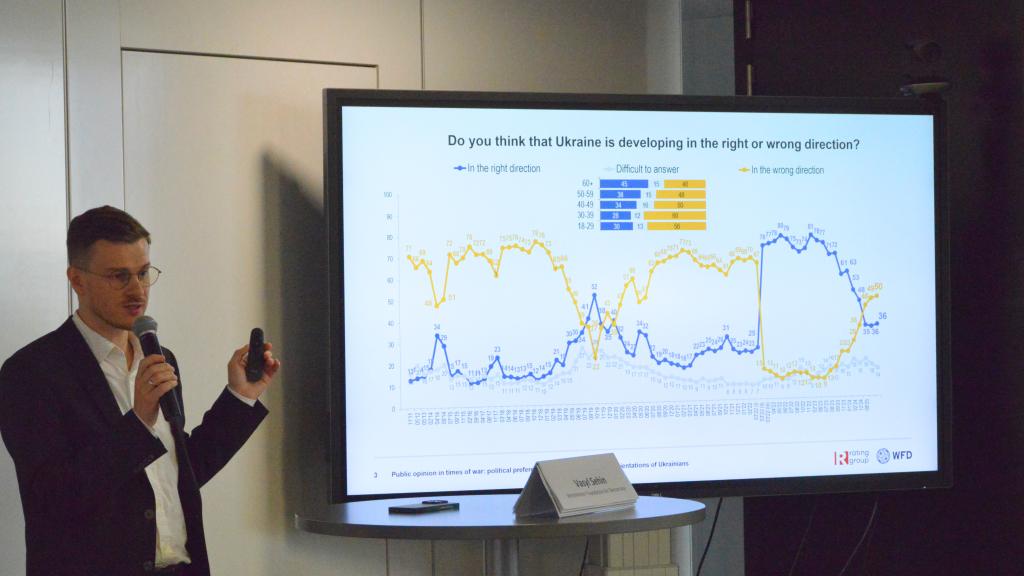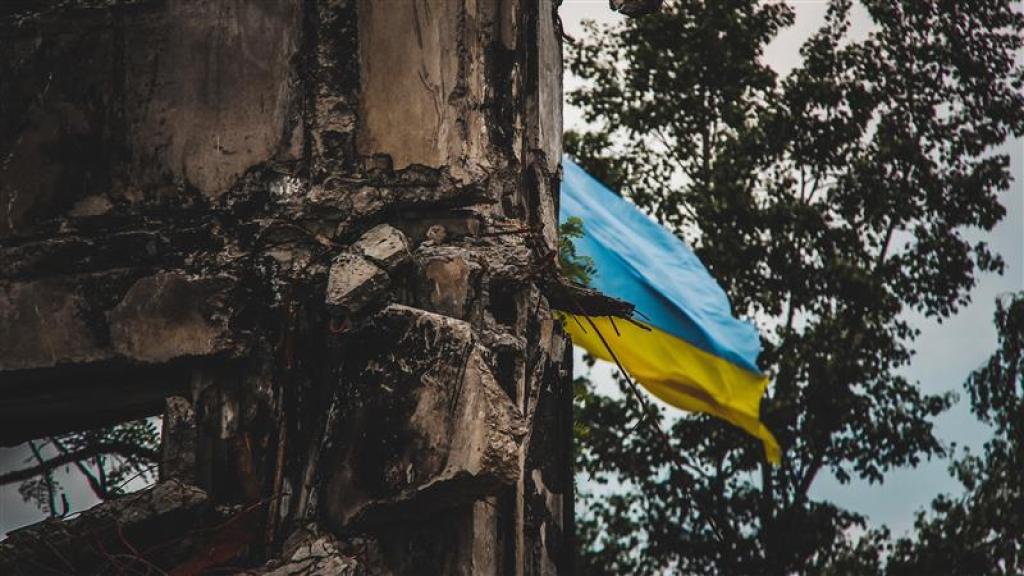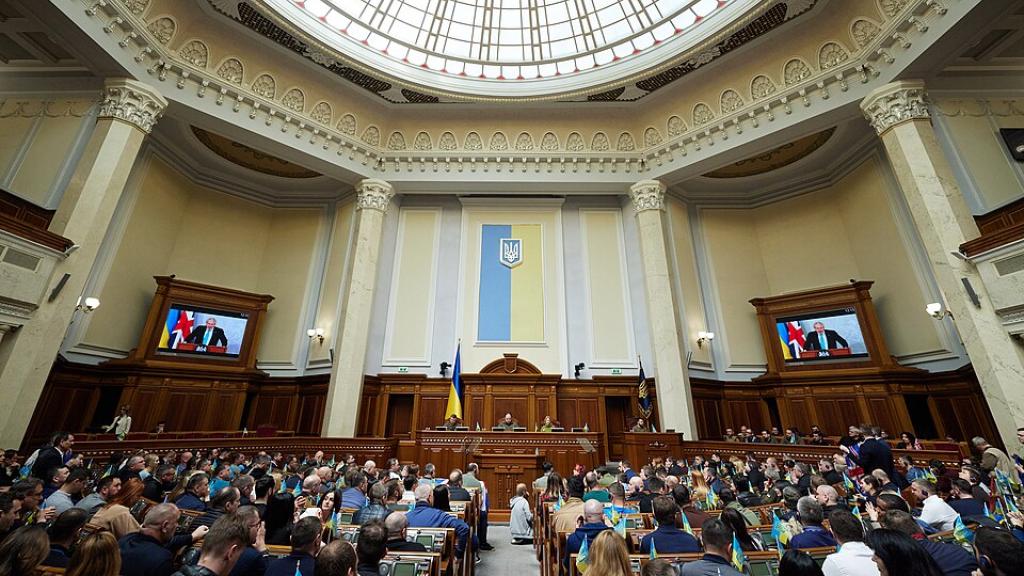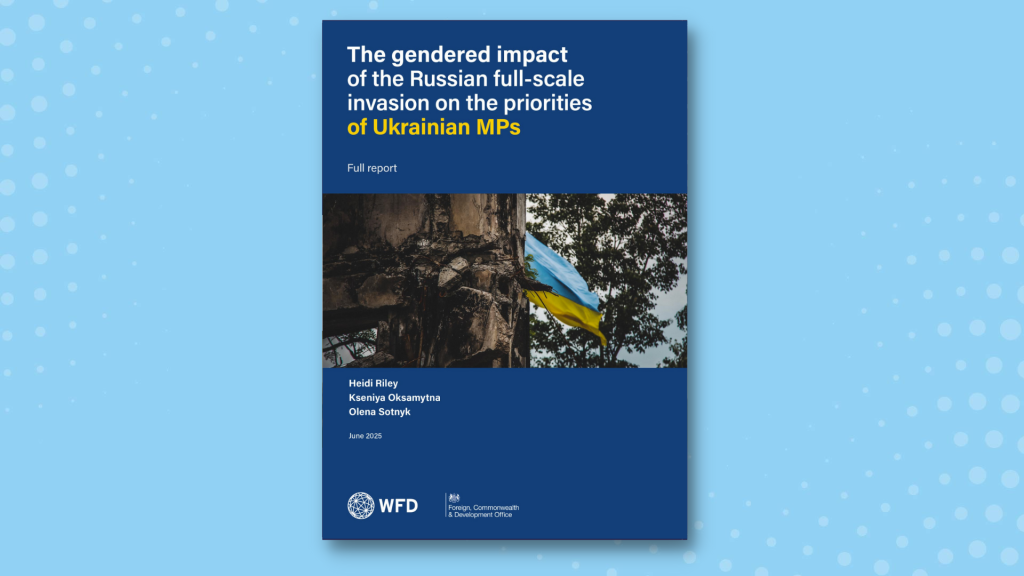Strengthening Ukraine’s democracy in 2024-2025
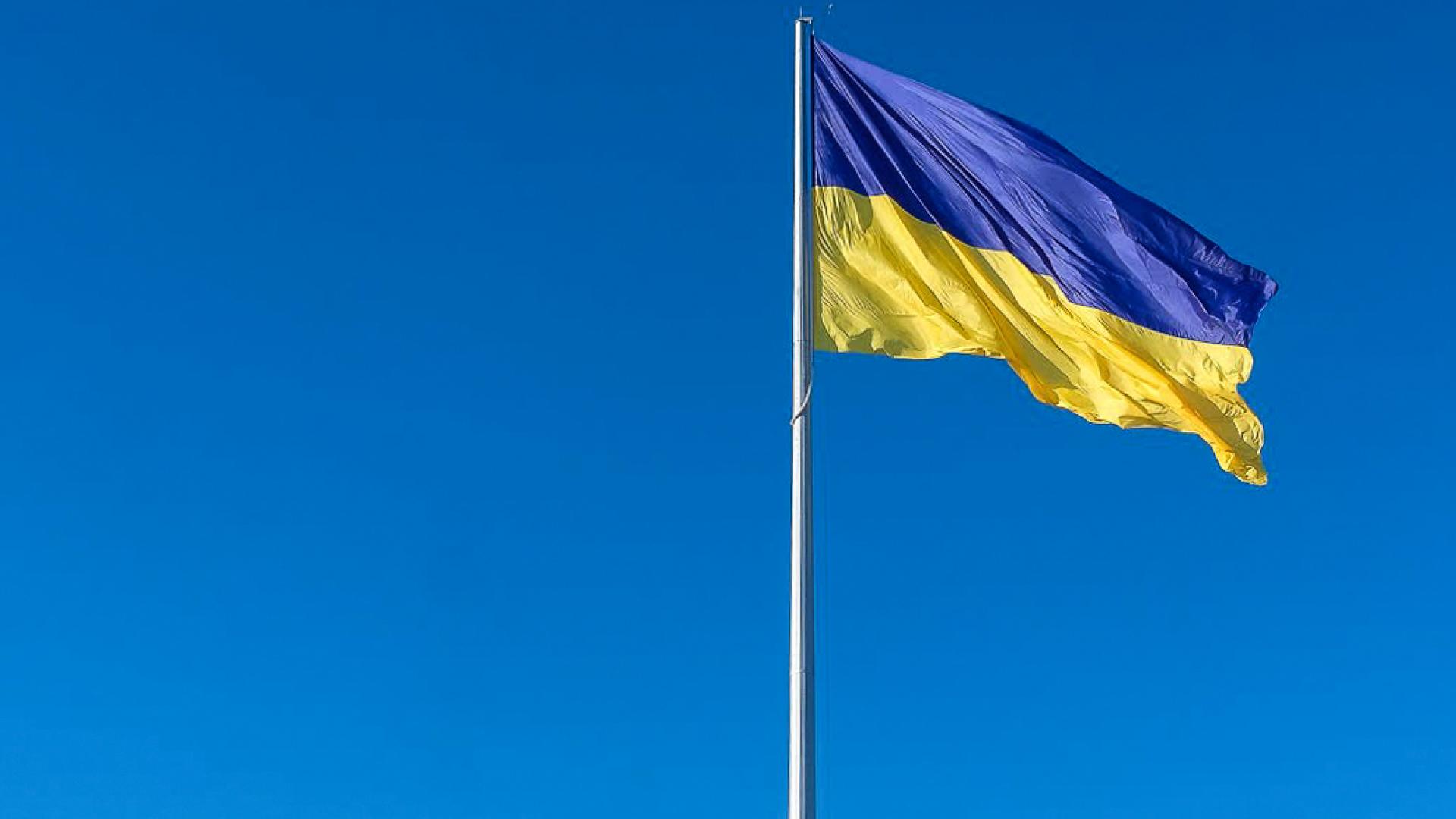
Preserving democratic institutions especially during wartime is critical to Ukraine’s stability. WFD is supporting Ukraine’s democratic development and recovery during and after the war by strengthening the capacities of both national and local stakeholders.
Through innovative approaches, we are bolstering democratic resilience and ensuring that the voices of Ukrainians are heard and respected, even in these difficult times.
Here are four key ways we made an impact in 2024-2025:
Strengthening Verkhovna Rada
WFD worked on strengthening the ability of the Verkhovna Rada to effectively perform its constitutional functions and to be able to respond to emerging challenges and tasks, including Ukraine’s post-war recovery. This was achieved by supporting the VRU’s legislative and oversight processes and its commitment to become a modern, effective institution that promotes accountability and democratic development in Ukraine.
Post-legislative scrutiny (PLS) consultations with non-parliamentary stakeholders, supported by WFD, allow parliament to assess how effective legislation has been in practice, identify gaps in its application and hold the government accountable for the implementation of the legislator’s recommendations.
We've introduced new tools that help Parliament hear from thousands of citizens at once. Using AI technology, Parliament can now process thousands of public comments about laws. This means more people—including vulnerable groups hit hardest by the war—can have their say about how laws are working in real life. Seven parliamentary committees have successfully completed 12 PLS inquiries between 2020 and March 2025.
Understanding citizens' expectations of political parties
Understanding citizens' priorities during wartime is challenging but essential. WFD is helping to improve awareness about citizens' expectations of political parties' role in the recovery process through public opinion research. Considering the limited resources of the political parties to conduct this kind of research during wartime, WFD offered public polling support. The results show that after military funding, Ukrainians care most about supporting veterans, protecting civilians, and creating jobs. They also prefer to wait until the war ends before holding elections. This data offers valuable insights for parties about which policies to work on to meet the needs of the population.
Facilitating partnerships with UK political actors
WFD supported the cooperation between Ukraine and UK political actors by organising several peer-to-peer learning exchanges. These exchanges support mutual learning for stronger democracy at local, national, and international levels, while building solidarity, partnership, and understanding across borders.
One of the key initiatives involved WFD organising a visit for Ukrainian delegates to observe the UK general election process, learn about campaigning practices, and meet UK counterparts. We also coordinated a visit to UK party conferences for Ukrainian representatives of political parties and civil society organisations providing them with an opportunity to learn about election campaigns, policy development, political party dynamics, and voter engagement. In February 2025, WFD brought a delegation of Ukrainian mayors and local government officials to Manchester, to deepen their understanding of local governance structures in the UK, with a focus on the dynamics of multi-mayor cities and effective regional management models.
Supporting Ukraine’s recovery
WFD is working with political parties, civil society and local government to ensure that democratic institutions can respond to the needs and expectations of its citizens during war and recovery. We successfully piloted inclusive approaches for identification and implementation of recovery projects in three liberated communities in the Kyiv region, with over 150 residents involved. We used innovative methods such as participatory action research, a way of doing research that overcomes barriers between ordinary people, experts, and decision-makers, to create an environment where each can participate on an equal basis to identify problems and develop solutions.
